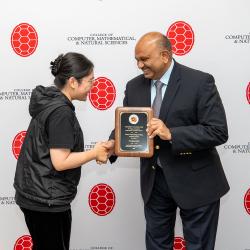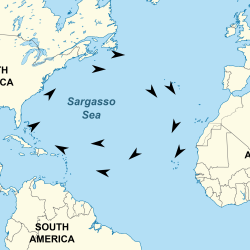College Awarded 41 Campus Teaching Innovation Grants
The University of Maryland awarded its College of Computer, Mathematical, and Natural Sciences (CMNS) with 41 Teaching Innovation Grants totaling over $477,000 to reimagine and reshape the future of teaching and learning at the university. The awardees will use the funding to develop new and creative instructional strategies for their Fall 2020 courses.
In addition, 16 CMNS faculty members joined the campus Design Sprint Learning Community this spring and summer to help transition their face-to-face courses to online or blended-learning courses.
“Our current unprecedented situation with respect to the COVID-19 pandemic presents great challenges but also provides new opportunities to learn about, develop and plan outstanding online courses that are adaptable and accessible to all students under a variety of circumstances and are highly innovative,” UMD Senior Vice President and Provost Mary Ann Rankin said in the grant solicitation.
A selection of Fall 2020 CMNS courses that will be redesigned with the Teaching Innovation Grant funds include:
- BSCI432: Systems View of Cell Biology, grant awarded to Antony Jose (Department of Cell Biology & Molecular Genetics). In this course, students integrate their understanding of cell biology from all of their previous courses and use quantitative tools to think about the topic from molecular to population scales. With the Teaching Innovation Grant, Jose plans to add a simulation component to the course related to the current coronavirus pandemic. Students will create simulations on how distancing measures to limit viral spread intersect with individual daily activity. These simulations will provide potentially varied perspectives on local implementation of distancing directives during the current COVID-19 pandemic at the level of a household.
- CMSC330: Organization of Programming Languages, grant awarded to Michael Hicks, Anwar Mamat and Roger Eastman (Department of Computer Science). This course has strong programming and written theory components, and no single textbook adequately covers the material. With the Teaching Innovation Grant, the faculty members plan to convert the existing lecture and course material to an online textbook with short videos and integrated self-directed formative exercises. The course will also focus more on student-directed testing, where students develop their own test suites to evaluate someone else’s code, and an approach called property-based testing.
- GEOL 100: Physical Geology, GEOL 110: Physical Geology Laboratory, and GEOL 120: Environmental Geology, GEOL 331: Principles of Paleontology, GEOL 342: Principles of Sedimentation and Stratigraphy, GEOL 423: Optical Mineralogy, GEOL 445: High Temperature Geochemistry, and GEOL 452: Watershed and Wetland Hydrology, grant awarded to Alan Jay Kaufman, Sarah Penniston-Dorland, Thomas Holtz, John Merck, and Tracey Centorbi (Department of Geology). With the Teaching Innovation Grant, the department will create virtual content for laboratory exercises and field experiences for geology courses. The faculty members will use a GIGAmacro Magnify2 robotic imaging system to create gigapixel resolution imagery of both macroscopic and microscopic rock and mineral specimens. They plan to use photogrammetry to develop virtual 3D models of topographic maps, structural geology block diagrams, mineral crystal structures, as well as rock and fossil specimens. They will also create virtual field experiences to connect lecture and laboratory experiences with real-world observations of geological phenomenon.
- MATH 141: Calculus II and STAT 400: Applied Probability and Statistics I, grant awarded to Jonathan Fernandes (Department of Mathematics). With the Teaching Innovation Grant, STAT 400 will now include projects that use R software, a powerful open-source software popular in the data science and statistics community. The students will work on hands-on projects that involve simulation of experiments and applications to real-life datasets. In MATH 141, students will use R and Python software to develop interactive visualizations that will help them better understand calculus concepts.
- TLPL 101: Inquiry Approach to Teaching STEM and TLPL 102: Inquiry Teaching of STEM in Middle School, grant awarded to Sarah Henson-Darko (Terrapin Teachers). Experiential learning in schools and classrooms is a cornerstone of the Terrapin Teachers program, but classroom access is currently limited due to the pandemic. With the Teaching Innovation Grant, a simulated classroom experience will be implemented in TLPL 101 as the main experiential learning opportunity. The simulated environment will offer undergraduates a safe place to rehearse and develop their teaching practice with avatars that look and talk like typical elementary school students. In TLPL 102, new tools will be implemented to create “storyboards” depicting classroom scenarios that allow undergraduates to consider key decision-making steps in their own teaching practice.
Complete listings of the Teaching Innovation Grants and Design Sprint participants can be found on the CMNS Teaching and Learning Center (TLC) website. The TLC offered two workshops to help CMNS faculty members prepare their proposals and continues to work with them throughout the summer to prepare their courses for the fall semester.
###
Media Relations Contact: Abby Robinson, 301-405-5845, abbyr@umd.edu
University of Maryland
College of Computer, Mathematical, and Natural Sciences
2300 Symons Hall
College Park, Md. 20742
www.cmns.umd.edu
@UMDscience
About the College of Computer, Mathematical, and Natural Sciences
The College of Computer, Mathematical, and Natural Sciences at the University of Maryland educates more than 9,000 future scientific leaders in its undergraduate and graduate programs each year. The college's 10 departments and more than a dozen interdisciplinary research centers foster scientific discovery with annual sponsored research funding exceeding $200 million.







